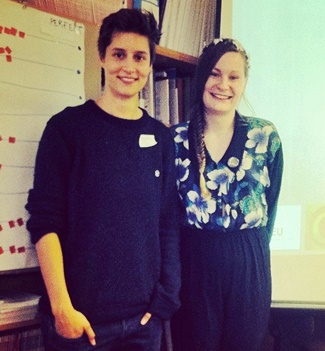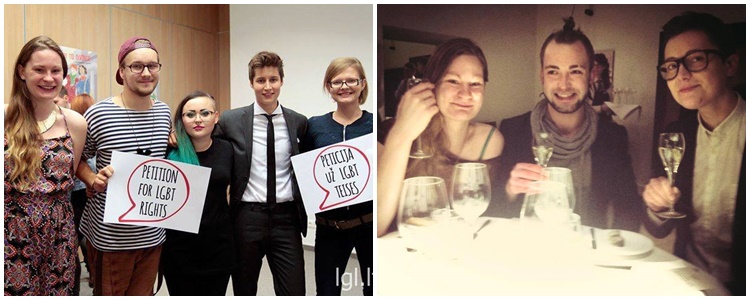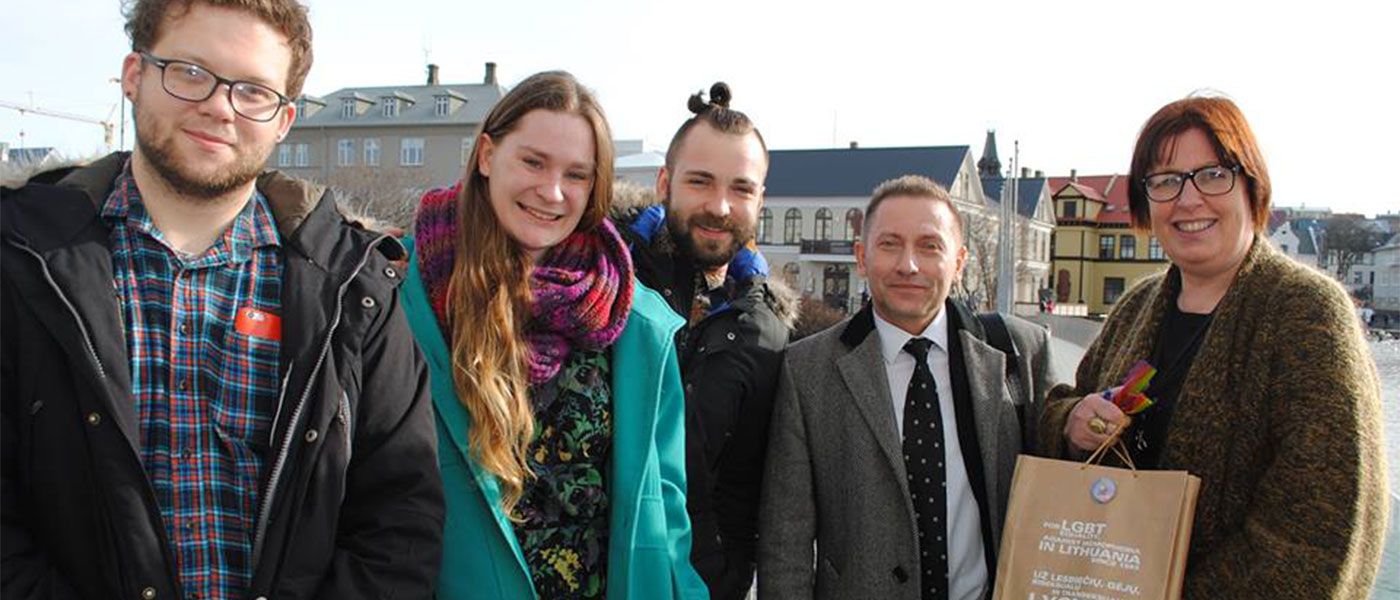Lithuanians look to Iceland for how to – and how not to – deal with transgender rights issues.
Recently two representatives from LGL, the LGBT national rights organization of Lithuania, paid a visit to Q, the queer student organisation of Iceland. The aim was to see what knowledge the Icelanders had to offer regarding rights of transgender people. Although there are still many issues unsolved in Iceland, Lithuania lags way behind, being one of the most homo- and transphobic country in Europe. Lithuanian law does not include a single clause on transgender rights and the few Lithuanians who actually have a sex reassignment surgery go to other countries for that purpose.
“For the two representatives, Iceland was a whole new world. It surprised them to see people actually talking positively about queer matters, as they experienced here,” says Ugla Stefanía Jónsdóttir, vice president of Q.

According to her the cooperation between the two groups reaches a few years back. “It all began back in 2012, when I and a person from LGL met at a conference and started to compare stories. That sparked an interest to work together and learn from each other, so we applied for a grant related to transgender issues.”
The outcome was a joint project that aims at providing useful knowledge for the transgender society in Lithuania. In August 2014, Ugla herself visited Lithuania, where she offered training for the volunteers and the staff of LGL, as well as giving talks and interviews with local media, explaining the situation in Iceland. And as said before, two representatives from LGL repaid the visit and had a busy schedule in Iceland. “They met transgender people here, as well as the team which takes care of the sex reassignment surgery (SRS) at Landspítalinn (the national hospital of Iceland).”
A meeting she says was very important for the Lithuanian delegation as a joint working group within the Lithuanian Ministries of Health and Justice is developing an algorithm for providing medical gender reassignment services in Lithuania. The Icelandic medical professionals also expressed interest in providing medical professionals in Lithuania with relevant knowledge. They urged the LGL representatives to explore further avenues of cooperation.
“Then the representatives talked to the people of the Human Rights Office of Reykjavík and got to know how the city deals with these issues.”
In 2012, Alþingi (the Icelandic parliament) voted for a law which at that time was said to put Iceland number one in terms of transgender rights in the Nordic countries. Is Iceland still leading? Does it have a lot to teach? To those questions, there is not a simple answer, as Ugla explains. “Well, yes and no! This was a progressive law, but we are dragging behind again. Here in Iceland, for example, it is still considered a mental disease to be transgender.”
“For the two representatives, Iceland was a whole new world. It surprised them to see people actually talking positively about queer matters, as they experienced here.”
Ugla sees that fact as condescending and would prefer the laws of Denmark, Sweden and Malta, for example, where no such definitions is to be found. “They don’t have “gate keepers” there either, a committee which has the power to decide if people can have a reassignment surgery or not. They have committees, but their job is to offer support and education, not to decide if a person is mentally ill or not.”
Having said that, there are only few countries in the world who have a special legislation regarding transgender people, so Iceland is well ahead, though it is not leading the way anymore. Someone from Lithuania can definitely learn something from the experience of Iceland about how to do things – or at least how not to go about them. “They will use the information and the knowledge to contribute to the legislation which is now in the making in Lithuania,” Ugla says.
The next step is forming a special transgender support group in Lithuania. “It is important for transgender people to have their own group, out of the LG community, where they can meet and share their experience. A group of that sort still doesn’t exist in Lithuania, so that’s an important next step.”

Main photo: From left, Sigurður Ýmir Sigurjónsson chairman of Q, project manager Ugla Stefanía, Tomas Vytautas Raskevičius policy coordinator (human rights) of LGL, Vladimir Simonko executive director of LGL and Anna Kristinsdóttir directive of the Human Rights Office of Reykjavík. Pictured on a bridge next to Reykjavík City Hall. Photo/LGL


